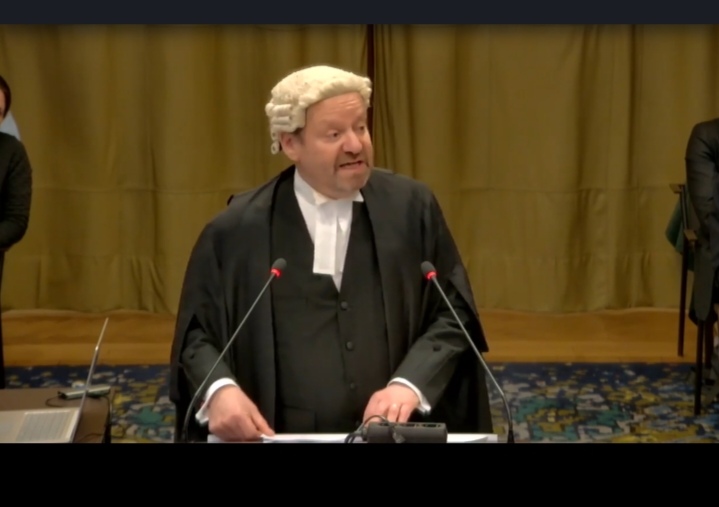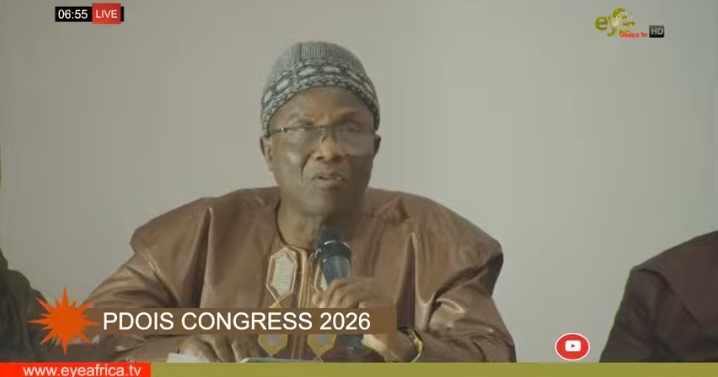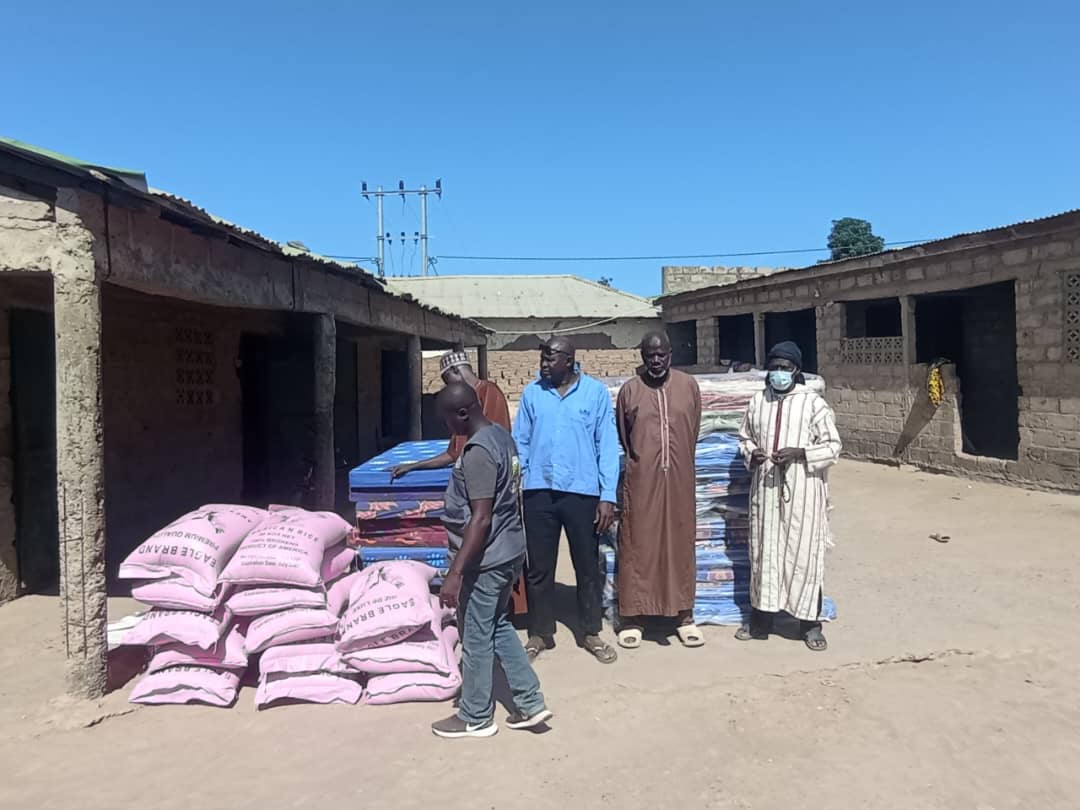By Pa Louis Sambou (first published 24-Nov-19)
In light of the heated debate which has been prompted by the omission of the word “secular” from the draft Constitution by the Constitutional Review Commission (CRC), I feel obliged to share my thoughts on the subject matter. In this regard, I will very briefly address three salient fundamental questions:
1. What does it mean to be a “secular republic”?
2. Should the absence of the word “secular” be a cause for concern?
3. What’s the way forward?
What does it mean to be a “secular republic”?
Secularism in literal sense means “…the principle of the separation of government institutions and persons mandated to represent the state from religious institution and religious dignitaries…” Effectively, it is the separation of State and religion.
Contrary to what’s being spread in certain quarters, Secularism does not threaten or undermine the practice of one’s religion at all. As a matter of fact there are at least 23 Muslim majority countries just like The Gambia which are secular republics including our neighbours Senegal and the Middle Eastern nation of Bangladesh; the practice of Islam, Christianity etc has not been hindered by the existence of their secular identities at all. The ‘toxification’ of the word secular is a busted flush which frankly speaking no one should give their attention.
Should the absence of the word “secular” be a cause for concern?
The CRC did not emerge from a vacuum nor did it come into existence of the its members’ own volition. The CRC was established by a law (Constitutional Review Commission (CRC) Act 2017) and this law at section 6 set out the Terms of Reference (TOR) for the CRC. The latter one of these clearly mandates them to:
“Safeguard and promote the Gambia’s continued existence as a secular state [in which all faiths are treated equally and encouraged to foster national cohesion and unity]”.
One would have thought that the disregarding of this TOR may have been an oversight. However, following the CRC Chairman’s unconvincing explanations it is confirmed that such was intentional.
Jammeh, in 2015 disregarded the Constitution when he declared The Gambia an ‘Islamic’ State and, in 2019 we have distinguished learned Gambian folks [deemed a safe pair of hands] disregarding the law (s.6(2)(d)(vi) CRC Act) to undermine The Gambia’s secular identity and put minorities’ continued existence in The Gambia at risk. Those concerned by this are indeed right to be concerned.
It is stated that the safeguards under section 151(2)(b) restricts the National Assembly from passing any laws to introduce a State religion. Take no comfort from such ‘safeguard’, it is a ‘paper tiger’ – it seeks to prevent the creation of something which would have already been established [in all but name] once this draft Constitution becomes the Constitution.
Let us try and understand the details of what is embedded within the 189 page Draft Constitution as far as this subject goes:
· Shariah forms part of the Laws of the Gambia.
· There will be established a Shariah high Court + Appeal Court.
· The Supreme Court will have Shariah jurisdiction.
· It established that legal practitioners qualified only as Shariah legal practitioners can practice and become judges even without having Common law competency (overthrowing a long standing principle in The Gambia and all other Common law jurisdictions) whereas legal practitioners with only Common law competency cannot practice or be on the Bench in the Shariah Courts.
· All superior Courts must have among its Bench Shariah judges.
· There is a legal corridor for Shariah to extend to Criminal & Civil matters beyond those matters stated at s.9(1)(e).
The above-mentioned represent a seismic change which is nothing like most ever envisaged will come out of the CRC exercise.
Effectively, overtime, it will become less and less attractive or incentivising for one to pursue and qualify as a lawyer under the Common law, something which would [by design] more likely than not result in The Gambia becoming a Shariah jurisdiction. This draft Constitution in its current form if it passes, would have established the exact thing s.151(2)(b) prevents the National Assembly from doing: establish a State religion and much more.
This Draft Constitution is not far of from what Yaya Jammeh had in mind when he declared the Gambia an ‘Islamic State’. But for the term limit, this is a Constitution Jammeh would be very pleased with.
It is not my intention to impugn their respective motivations but, the CRC Commissioners need to be more open to the public as to the outcomes they seek and their motivations for introducing those things within this draft Constitution which are causing so much uproar and reopening the wounds which Jammeh inflicted on the non Muslim minority for over 20 years. Besides there is nothing whatsoever in their TORs (s.6 CRC Act) which mandates for such things. Therefore, those concerned need not only be concerned by the omission of the word “secular” but all of the above-mentioned overreaching draft provisions.
This subject is not a Muslim v non Muslim issue nor one about theology. It concerns the future of our “…common good…” as a “…diverse people…” in a Country which for years uniquely had people of all ethnolinguistic backgrounds and faiths, beliefs coexisting peacefully under one State. This served us for decades, so why change it now?
What’s The Way Forward?
In my view, the CRC Commissioners have got to comply with their TOR under s.6 of the CRC Act and accordingly address the flaws in this draft Constitution. Moving forward from that, a broader and much more honest and genuine conversation need to be had between the CRC and the respective Religious bodies i.e Supreme Islamic Council, the Gambia Christian Council and others with a view to understanding how best the relationship between a secular Republic of The Gambia and the existing religions and faiths can be best regulated, managed and fostered for the good of all.
Unless the CRC understands the needs and expectations of its customers (the Gambian people), anything emerging from it may unsurprisingly continue to be less popular than intended and more divisive and unhelpful than anticipated. I hope the CRC will reflect on this issue, revisit their conscience and do what is right rather than what is convenient and personally beneficial to them.
About the Author
The author is regular columnist contributor to this medium.
Twitter handle: @That_Pragmatist
Publisher’s Note
Views expressed herein are those of the author and do not necessarily represent the views of the publisher. Want to be a contributing author? Please email opmail220@gmail.com





